
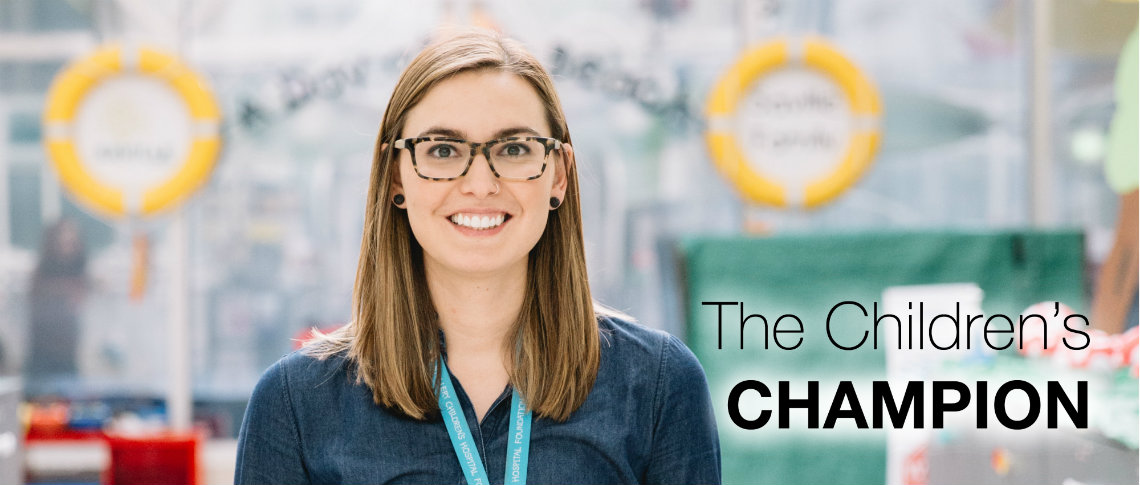
As told to Christy Weis
Child life specialists work with children and their families to help kids cope with the challenges of hospitalization.
Hospitals can be a scary place, and we work with the children and their families and the health team to try to make it easier on the child.
While the doctors, nurses, and other healthcare specialists work on the patient’s physical health, we want to make sure that the child can understand what’s going on with them, what’s happening to their body, in a way that’s appropriate for their developmental age.
We do that by preparing the child for different procedures that they might have while they’re here, helping to teach coping skills, and making sure that kids are playing while they’re in the hospital – it’s such an important part of children’s psychosocial health and development. We also do the special programming at the hospital on different holidays and run the playrooms.
We focus on the child. When I go in to make my assessment and meet the child, I’m talking directly to the child to try to find out information. As well, in pediatrics, we practice family-centred care. We learn from the parents who know their child best to get information about how their child might cope and what strategies have worked in the past.
When I go in, I’m trying to find out all of that information, to really tailor our care to this child. Everybody’s different, so we make it individualized. If this child has a favourite TV show or a comfort item such as a blanket or a stuffed animal, we think of creative ways to use it during their treatment.
There are a lot of things that I look at and consider when I’m assessing the child. We ask a lot of questions.
How old are they? Do they have past experience with healthcare? Was it a positive experience? Are they anxious, curious, shy, or outgoing? How much do they understand about what’s happening to them? Are they not reacting to what’s happening around them as much as they usually would because of their illness?
We talk to the child, and try to get a sense of the child’s personality. We talk to the parents. After all, the parents are the expert on their child. We also observe how are the parents are responding. If the parents are anxious, kids will often follow their lead.
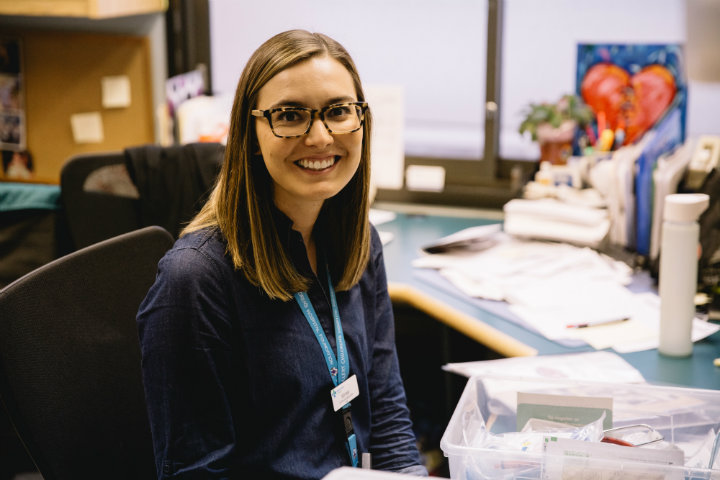
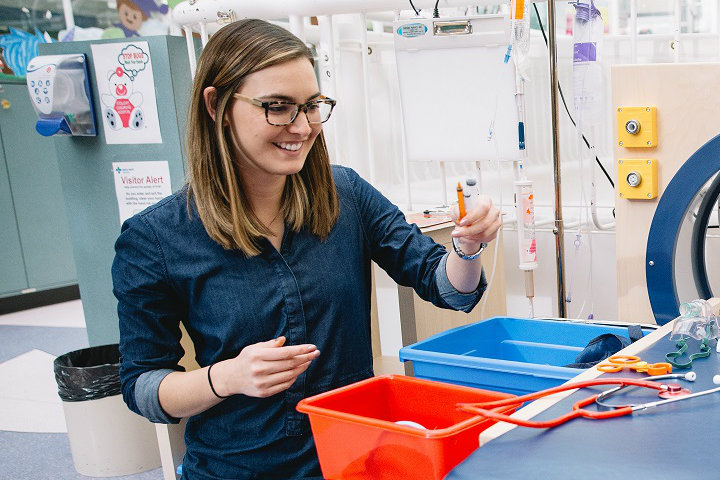
A lot of us are generalists, but some do have some specific areas. Here at the Stollery, we have a child life specialist that just works in oncology, and another teammate specializing in cardiology. But many of them develop specific skills in areas due to the time that they have spent working with a certain population.
I love it when I’m working with a kid, and I’m able to watch them go through a procedure that they think is going to be really hard and that they’re really scared about, come out successfully (according to that child) on the other side. Successful can mean a lot of different things – it could mean that the child cried, but was able to hold still on their own or that they were able to use all their coping skills and didn’t even notice the procedure happening. The healthcare team, the patient, their parents and I work together to come up with a tailored plan for that patient and their family.
When a procedure goes off without a hitch – it’s the best feeling. The kids are so excited and proud of themselves, and the whole family and healthcare team can say, “That was so much easier than we thought it’d be!”
My goal is always to engage the child, like, provide a distraction for example. It might be a form of passive distraction, like putting on a video, or it could be active like giving the child a special job or having them play a game with me. Whether it’s one of us in the child life team, or we coach the parents to do it, distraction is often an effective technique to help kids cope.
We try and empower kids, to make them feel a little more in control of what’s happening to them. Giving a child choices can help. Do you want the IV to go in your left arm or your right arm? Would it be better in your elbow, on your hand, or your wrist?
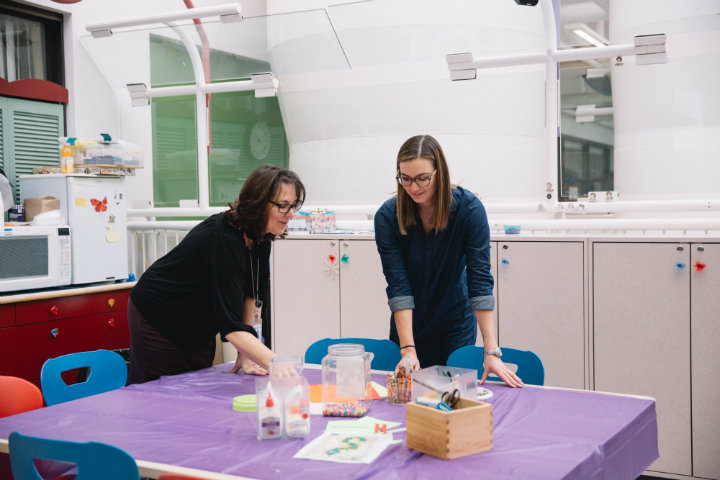
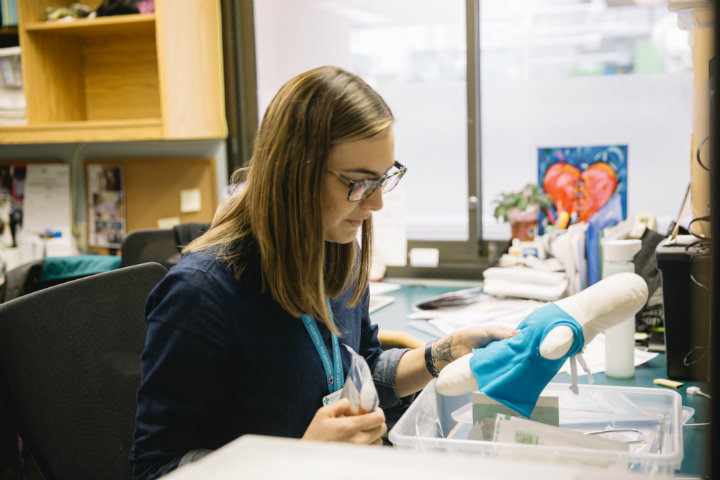
Once we had a patient in the emergency department who needed stitches on his forehead, and he was very anxious about it. He needed to lay on his back, and keep his hands and body still, which can be very hard if you’re six or seven years old and full of energy! In addition, lying flat on your back can make anybody anxious – it’s one of the most vulnerable positions anyone can be in because so much of your body is exposed and your view is limited. Of course it’s scary for a kid!
I got to know him, and I found out his favourite music. We got the doctor to play it on his phone, and then all of us – the doctor, his mom, the child, and we were all singing along as the doctor sutured his head. The singing helped everybody – it calmed the child down, it calmed his mom down, and the doctor and I were into it! Someday, when the kid is asked about his stitches, I hope he can remember it as a positive experience.
There are a couple of different avenues to become a child life specialist. I have an undergrad in communications, and then I went to McMaster University in Ontario and took a postgraduate diploma in child life. You can also take it as a graduate program and earn your master’s degree. Once you’ve finished your courses, you complete a 480-hour internship, and then you can write the exam to become a certified child life specialist.
This is something that I really love to do. My day never looks the same, and I’m always going into a new day with new challenges, and meeting new families.
When I’m at work, it doesn’t really feel like I’m at work. I’m able to be silly or get on the floor and play with kids, and use my brain to think creatively about handling situations with a unique, personalized approach.
You need to have deep respect for children and working with them, and be patient, and also be creative. Not necessarily in the sense of being artistic, but thinking outside of the box, where you ask the question, “How can we do this procedure differently?” or “How can we come up with something maybe a little different than normal that will work for this child?”
Child life is a really unique profession – lots of different kinds of people can be successful child life specialists. We have a pretty big team here at the Stollery, and there are so many different personalities on the team.
There are the “energizer bunnies,” the people who bring that really big positive energy to the situation, or we have more laid-back people, who have that calming effect on the room, or we have really artistic people that bring that kind of creativity into their practice. It’s fantastic!